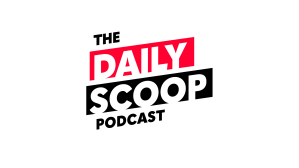White House showcases impact of local tech Meetup groups
An estimated 11,000 technology Meetup groups now gather regularly in more than 1,100 towns and cities across the U.S., according to the networking organizer Meetup.
But White House officials launched what is believed to be the first national “Tech Meetup” of its kind Friday when U.S. Chief Technology Officer Megan Smith invited 50 top tech community organizers from across the country to the White House to share their success stories.
Co-hosted by the National Economic Council and its director, Jeff Zients, the event served as part-showcase, part-workshop for how those community tech groups are helping their members learn new skills, share ideas, and explore job and startup opportunities.
It also cast a national spotlight on a model the administration believes could help address the gaping shortage of qualified information technology workers in the U.S. employment pipeline and create better paying jobs, as part of the administration’s TechHire Initiative announced earlier this year.
While the economy has created 12 million jobs over the past five years, Zients said, “we have 5 million jobs that are open today. And over half a million of those jobs are in information technology. That’s far and away the largest category,” he said. “The good news about these jobs, is they pay … 50 percent more than average private sector jobs.”
U.S. Chief Technology Officer Megan Smith spoke at White House Tech Meetup April 17. (Liz Gorman/White House)
“But too many American’s think of these jobs as not possible — out of their reach; that they’re only available in Silicon Valley or that they all require a 4-, 5-, 6-year degree in computer science. All of you know that’s not the case,” he told the audience, which included community organizers, local elected officials, business and civic leaders, coders, designers, entrepreneurs, and funders from nearly 40 states.
Zients warned, however, “there’s every reason to believe that … the demand for [IT] jobs is going to continue to grow. Getting Americans to fill these well-paying jobs is not only the right thing to do, but it’s really important for our country’s position in the global economy,” Zients said.
Smith said the White House Tech Meetup had a few goals in mind, but chief among them was to highlight ways to engage more of the population to pursue technology jobs, “especially those who have been less well-represented in tech,” as she put it in a White House blog post.
But she also stressed the opportunity for building capacity for technology innovation that she sees emerging from these Meetup groups across the country.
“I feel like we’re in the pre-Model T days of what we’re going to use this [Internet] medium for, and you guys are on the bleeding edge of that,” she said.
The daylong event featured spotlight presentations from three types of tech communities: skill-sharing and learning communities, innovation and entrepreneurship communities, and tech for social change and economic development. Among the more than two dozen community groups who presented innovative programs were:
The Digital Harbor Foundation — Former teacher Andrew Coy converted a failing inner city recreation center in Baltimore into a youth-centric community tech center and maker space in 2013 that now expects to train 2,500 youths this year on Web development, electronics and 3-D printing. Coy told the White House Tech Meetup gathering that the biggest challenge for community centers like his is “how do we formally support informal learning and grow that?”
Code Crew NYC — Jamal & Felicia O’Garro decided to learn how to code after the couple were laid off two years ago and couldn’t find work. They started a code study group in New York City that grew to 7,000 members in just two years and has helped dozens of people, including women and minorities, land good tech jobs. The biggest challenge they and others like them face, they said, is finding adequate space to support their growth.
Digital Nest — Founder Jacob Martinez found a way to provide 270 youths and adults from low-income families and rural communities with the training and equipment that was otherwise beyond their reach, and helps them gain access to technology training.
Girl Develop It — Founded in 2010 in New York by Corinne Warnshuis, GDI has taught more than 20,000 students to code — many of whom now teach others — and has more than 41,000 members.
New Tech Seattle — Now with more than 7,100 members in the Seattle area, NTS borrowed techniques from similar groups in New York and Boulder, Colorado, in helping people find jobs. But founder Brett Greene insisted, “Tech is the seed, but community is what it’s all about.”
Representatives from Orlando Tech; NJ Tech; New Tech PDX in Portland, Oregon; and NebraskaJS also highlighted how technology groups are playing an increasingly large role in meeting the tech and Web development needs of local business communities across the country.
Meetup CEO and co-founder, Scott Heiferman, who also spoke at the event, said Meetups are taking place in more than 180 countries around the world, with a total of 30,000 tech Meetup organizers in the U.S.alone. The network and training opportunities they offer can “change lives in a transformational way,” he said.
A full list of those who participated at the White House Tech Meetup is available on Meetup’s website.





